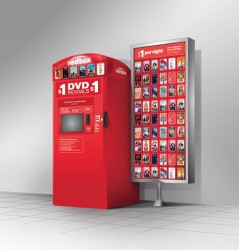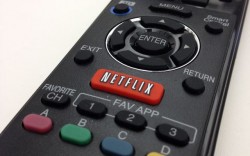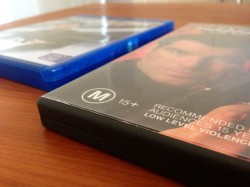Weekly News Roundup (December 10, 2017)
December 10th, 2017Welcome to another WNR. It’s been a very quiet week, and I expect a few of them going into the holiday break. But as long as there’s a single story to talk about, we’ll be here, even if the WNR, like this one, might be a very short one indeed.
![]()
It’s not often that I agree with the premise behind a Hollywood studio’s lawsuit. These types of lawsuits usually tend to exaggerate the scale of the problem, frequently ignore the principles of fair use, and mostly just used by studios for propaganda purposes, with no real effect on piracy.
But Disney’s lawsuit against Redbox, from a common sense point of view, does seem to have merit. Redbox has been buying Disney movies at retail and putting them in their Redbox kiosks. This part I have no problems with, and while I’m sure Disney would prefer a more formalised deal, this isn’t what the lawsuit is about. What it is about is Redbox taking the Digital Copy inserts from these Blu-ray or DVD movies and then selling them to their customers, despite it being made very clear that these Digital Copy codes are not for sale or transfer.
I’m sure individuals have done this before – to sell the Digital Copy codes on at a discount compared to what the movie would normally cost on iTunes. But for a company to do this, on such a scale commercially, they’re just asking for trouble. The fact of the matter is that Disney and other studios offers a “discount” on these digital copies as part of a Blu-ray or DVD combo in order to promote their disc sales, even though they know this will eat in to their digital only business. Redbox actions removes any incentive Disney has for going down this road, and at the same time, takes a chunk out of Disney’s digital sales.
Redbox’s argument seems to be that it’s good for the consumer, and so they should be allowed to do it. They have a point in that, by offering these digital downloads at a discount, it’s doing us consumers a favour. But we all know that if this is Redbox’s only argument, then it will not hold up in court, because there are plenty of “pro-consumer” products and activities that are, at the end of the day, outright illegal.
![]()
Redbox’s actions are not really a threat to Disney’s disc and digital sales, as the studio is doing roaring business thanks to its major franchises, all of which seem to do well on Blu-ray. But with that said, discs sales are definitely down all around. With Black Friday just out of the way, I’ve managed to have a look and write up the sales results from the week, and things aren’t looking up.
In fact, almost everything is down. Both Blu-ray sales and DVD sales are down, but because DVD is falling faster than Blu-ray, weekly Blu-ray market share managed to rise compared to the last Black Friday. That’s little consolation considering overall sales were down $36 million, or roughly 13%.
The only bright spot appears to be Ultra HD Blu-ray sales, which now accounts for nearly 10% of all disc sales for many of the top sellers. That’s not bad considering the number of 4K TVs in people’s homes, and the lack of real discounting on BF.
The arrival of subscription streaming, and to a lesser extent, digital sales, have all had an impact on the popularity of discs.
======
That’s all we have for you this week it seems. Told you it wasn’t much. Hoping there’s more next week, so until then …












